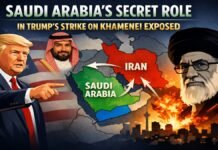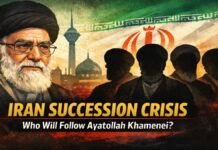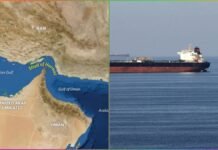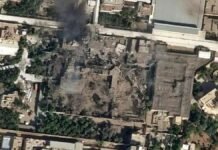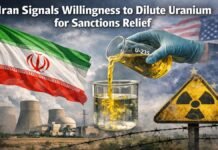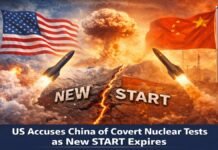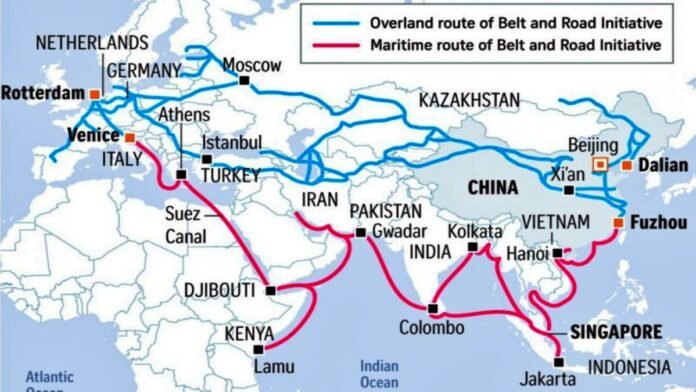
Key Highlights:
- Panama Ends BRI Deal: President José Raúl Mulino announces Panama will not renew its Belt and Road Initiative (BRI) agreement with China, citing U.S. concerns over Chinese influence on the Panama Canal.
- Trump’s Threats: Former U.S. President Donald Trump warns of “something very powerful” if the canal’s control isn’t shifted away from China.
- Audits Underway: Panama initiates an audit of a Chinese-linked company operating terminals near the canal.
- Protests Erupt: Hundreds rally in Panama City, denouncing U.S. interference and asserting national sovereignty.
Panama’s Decision: A Strategic Shift Under Pressure
In a pivotal move, Panamanian President José Raúl Mulino declared that his government would not renew its 2017 agreement to join China’s Belt and Road Initiative (BRI). The announcement followed a high-stakes meeting with U.S. Secretary of State Marco Rubio, who urged Panama to reduce Chinese influence near the strategically vital Panama Canal.
Mulino’s decision signals a shift in Panama’s foreign policy amid escalating tensions between Washington and Beijing. “This visit opens the door to building new relations and increasing U.S. investments in Panama,” Mulino stated, emphasizing that his country’s sovereignty remains non-negotiable despite mounting U.S. pressure.
Trump’s Ultimatum: “Something Very Powerful Will Happen”
Former U.S. President Donald Trump reiterated his longstanding threats to reassert American control over the Panama Canal, accusing Panama of violating the 1977 treaty that returned the canal to Panamanian control.
Speaking to reporters, Trump alleged that Panama had ceded operational control of the canal to China through its BRI participation. “The canal was given to Panama, not China,” Trump said. “They violated the agreement, and we’re going to take it back or something very powerful is going to happen.”
The treaty allows U.S. intervention if the canal’s neutrality is compromised by internal conflict or foreign powers, a clause Trump has repeatedly referenced since before taking office.
Chinese Influence Under Scrutiny
Panama’s involvement in China’s BRI has drawn criticism for allegedly increasing Beijing’s foothold in global trade routes. As part of its alignment with China, Panama cut diplomatic ties with Taiwan in favor of Beijing in 2017, further straining relations with Washington.
Mulino acknowledged these concerns by announcing an audit of the Panama Ports Company, a subsidiary of Hong Kong-based CK Hutchison Holdings, which operates two terminals near the canal. The audit aims to determine whether Chinese-linked entities have overstepped their operational boundaries.
Protests Erupt Over U.S. Interference
As Rubio met with Panamanian officials, protests broke out in Panama City, with demonstrators waving national flags and chanting slogans such as “Marco Rubio out of Panama” and “Long live national sovereignty.” Some protesters burned banners featuring Trump and Rubio before being stopped by riot police near the presidential palace.
The demonstrations reflect growing public discontent over perceived U.S. interference in Panama’s internal affairs, even as the government seeks closer ties with Washington.
Security and Migration Talks
In addition to discussing the canal, Mulino and Rubio explored expanding a migrant repatriation program for undocumented foreign nationals in Panama. Mulino emphasized that any such program would require financial support from the United States.
The Bigger Picture: A Global Power Struggle
Panama’s decision to distance itself from China underscores its delicate position in the ongoing geopolitical rivalry between the U.S. and China. The Panama Canal remains one of the world’s most critical trade arteries, handling more cargo today than during its years under U.S. control making it a focal point for both economic and strategic interests.
As tensions escalate, all eyes are on how this decision will shape Panama’s relationships with both superpowers while maintaining its sovereignty over one of the world’s most vital waterways.






